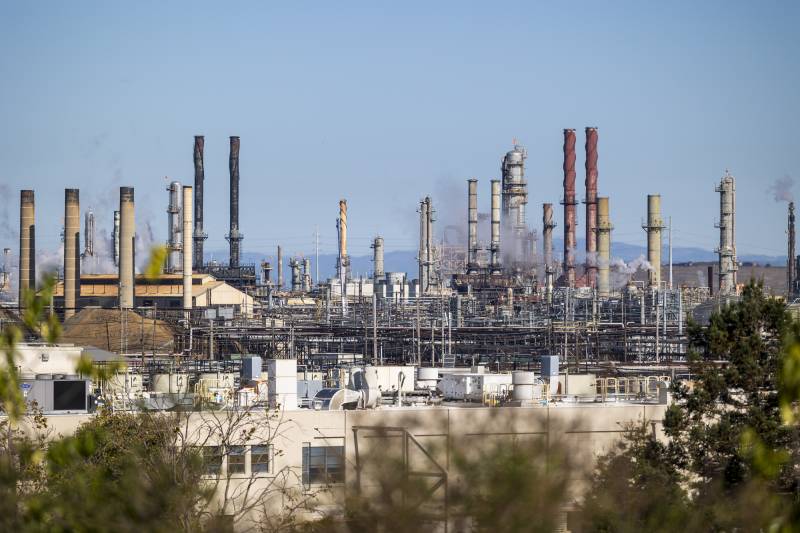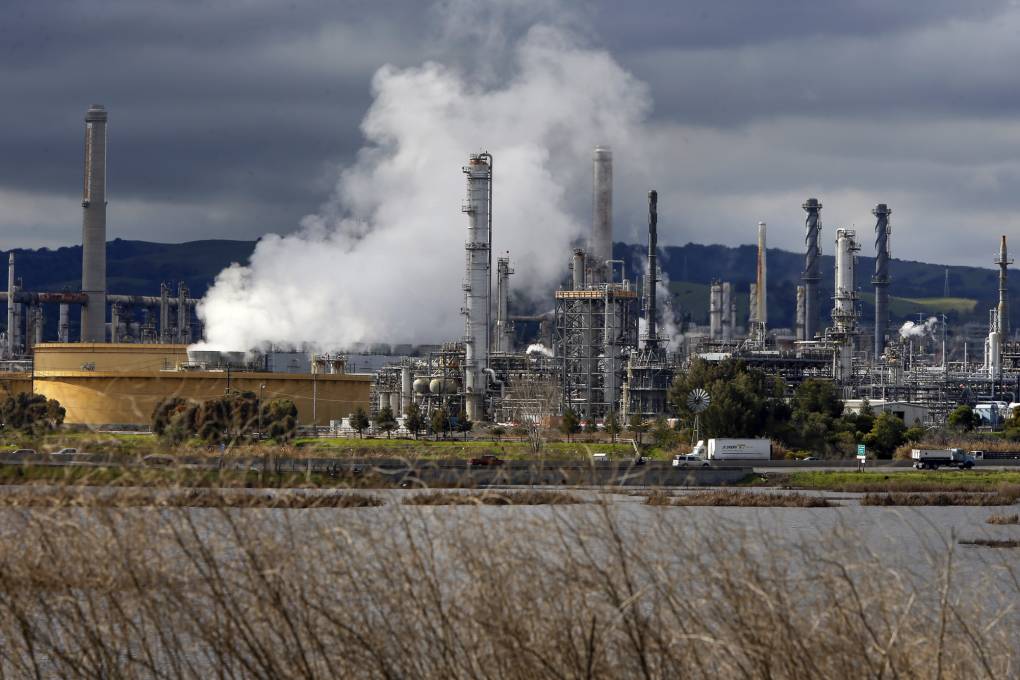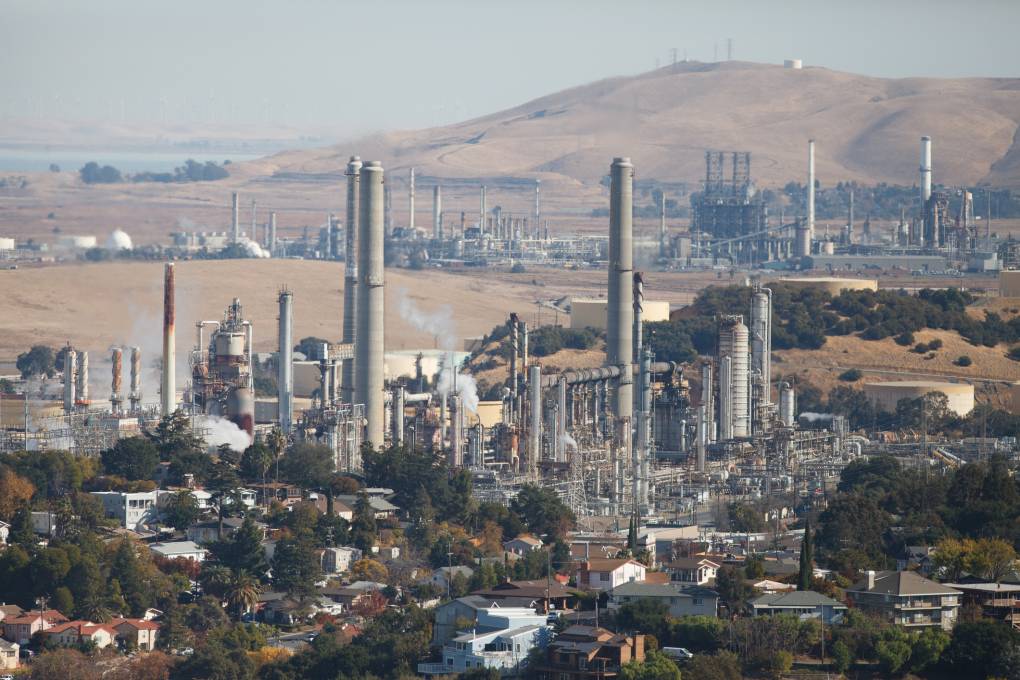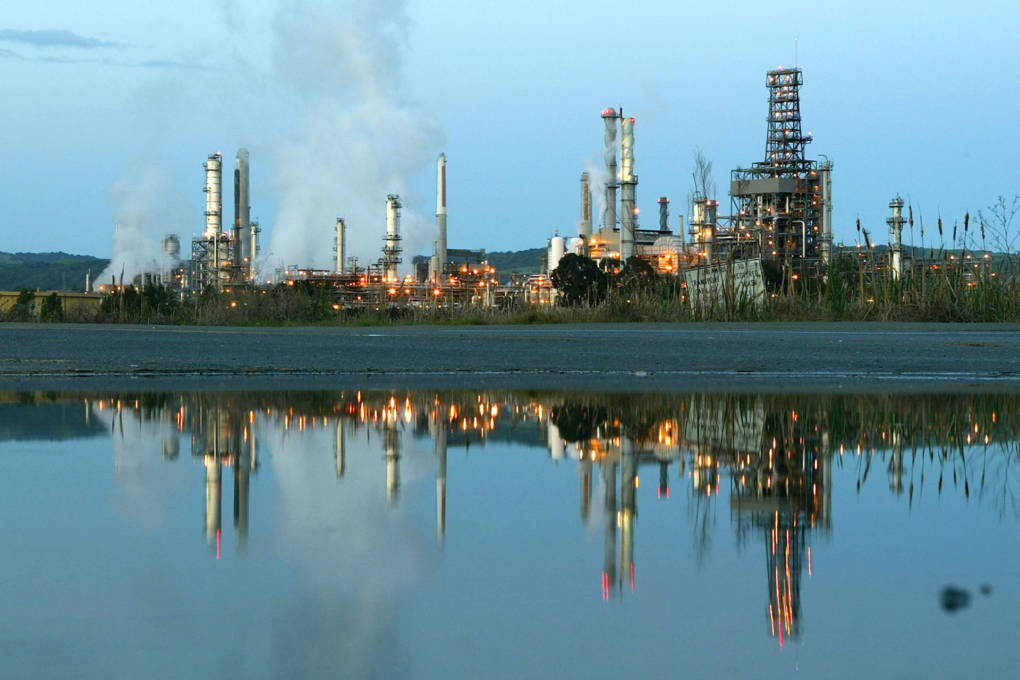Updated 3 p.m. Tuesday
Bay Area air regulators say they’ve won a “decisive victory” in a legal fight with a pair of oil companies that had sued to block enforcement of a rule intended to sharply reduce an especially harmful form of pollution emitted by the facilities.
The Bay Area Air Quality Management Agency (BAAQMD) on Tuesday morning announced agreements with Chevron, which runs a 120-year-old refinery in Richmond, and the Martinez Refining Company, that commit both firms to comply with a rule requiring crude oil production facilities to curtail particulate pollution beginning in July 2026.
The two companies are dropping lawsuits that challenged the rule. Chevron has committed to paying penalties and making other payments that could total more than $130 million if it delays compliance with the rule. Martinez Refining, a subsidiary of New Jersey-based PBF Energy, has agreed to implement a continuous monitoring system to ensure compliance with the district regulation. Each company will pay up to $500,000 to cover the district’s legal fees.



